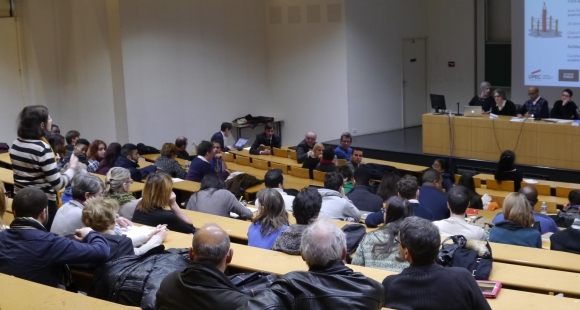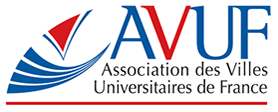
On January 20th, the University Paris-Est-Créteil held a panel discussion on freedom of expression featuring a lawyer, a philosopher, a doctor and a professor of Information and Communication Sciences. Students grappled with the French legal definition of satire. "Where does comedy end and incitement to terrorism begin?" one audience member asked. Participants considered the case of Dieudonné, the French comedian who was himself charged with incitement to terrorism, among other similar offences.
Many universities focused on the power of education. A political science debate at Sciences Po Lille on the role of schools and the government drew 250 students. The audience reflected on teaching French Republican values in school and refusals to comply with the moment of silence after the attacks. At Paris Ouest University, student teachers in the ESPE program discussed the challenges of imparting values like tolerance and freedom of expression to students.
fight racism
The main topic at the February 2nd panel discussion hosted by the French student union UNEF was French Republican values. Speakers included Edwy Plenel, founder of French news site Médiapart, Benjamin Stora, historian and expert on the Algerian War, and Shiam Assbague, spokesperson for Le Collectif Contre le Contrôle au Faciès, a French anti-racial profiling nonprofit. Attendance at the event was high, as were concerns about growing racism in France.
One audience member complained, "Public institutions are no longer doing their job, especially not schools." He suggested teaching philosophy to middle schoolers in order to foster the spread of knowledge among younger students. Edwy Plenel emphasized "the need to explain the meaning of the 1905 law," the French law that imposed the separation of church and state. Benjamin Stora commented, "We can't fight racism if we haven't learned about history, especially colonial history." One thing was clear: the debates must go on.






